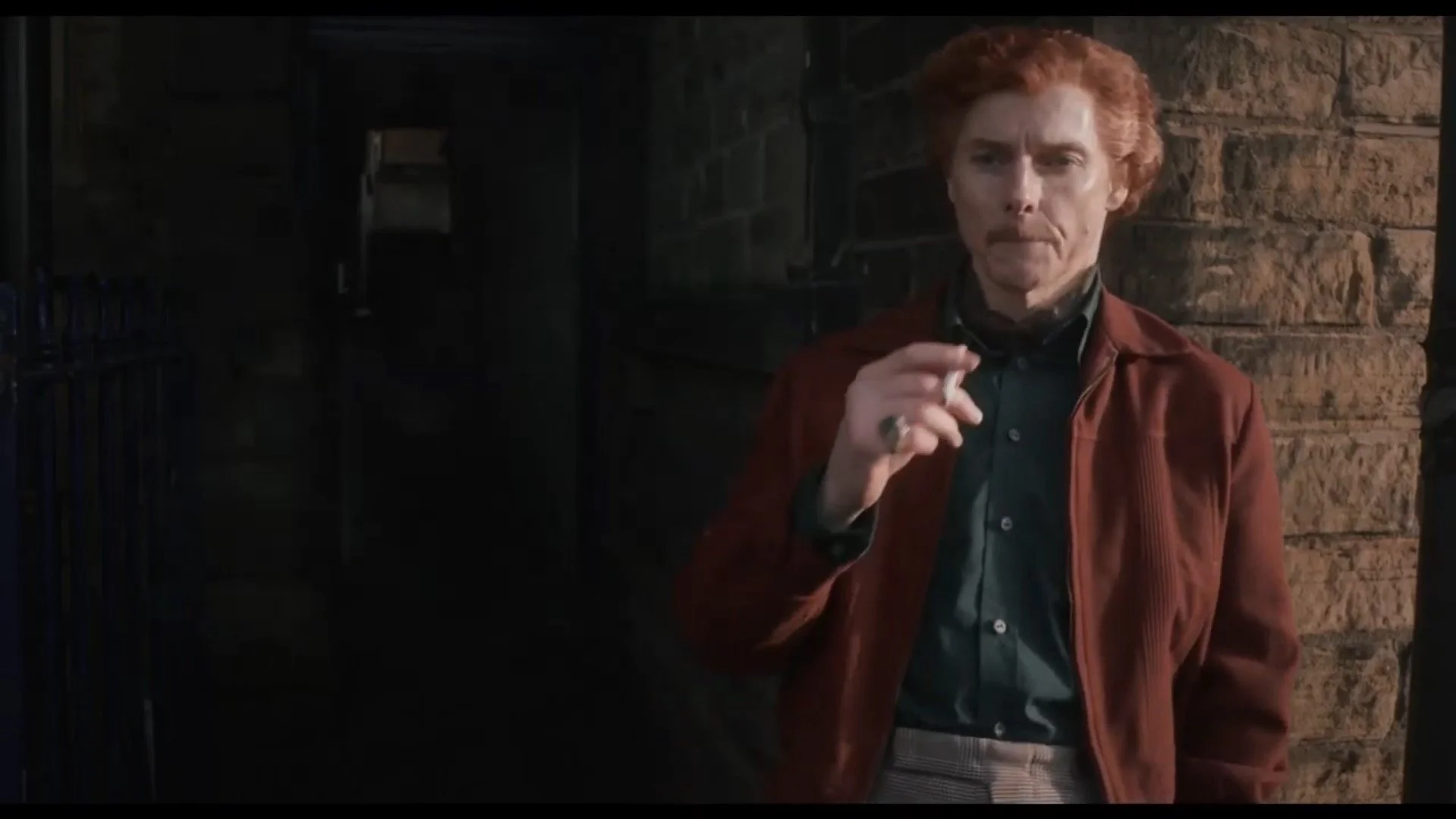The Banishing (2021) Manifests Lackluster Haunted House Thrills
Originally published May 25, 2021
Title: The Banishing
First Wide Release: March 26, 2021 (Digital/Streaming Platforms)
Director: Christopher Smith
Writer: David Beton, Ray Bogdanovich, Dean Lines
Runtime: 97 Minutes
Starring: Jessica Brown Findlay, John Heffernan, Anya McKenna-Bruce
Where to Watch: Check out where to find it here
After a long time away to return a congregation to its former glory, a reverend, Linus (John Heffernan), welcomes his wife, Marianne (Jessica Brown Findlay), and daughter, Adelaide (Anya McKenna-Bruce), into their new home. Set in the 1930s England, the story follows the family adjusting to their new comfortable life in the small town. Unfortunately, there is something malevolent about the manor that they’ve moved into and some townsfolk begin sending ominous warnings and threats to leave. Soon things slowly spiral out of control with Linus becoming increasingly enraged with Marianne’s defiance of him and the church and Adelaide refusing to acknowledge that Marianne is her mother. What forces are causing the dissolution of this family and can they be stopped?
A lackluster haunted house flick, The Banishing fails to conjure a memorable story or scares.
A largely okay film, The Banishing is simply not up to snuff with the rest of Christopher Smith’s horror filmography. The biggest issue in this 1930s supernatural horror is that it feels so stale. Almost every aspect of The Banishing is ripped from a better film. This isn’t bad in of itself, but the crew doesn’t do anything to elevate the material. It’s a standard haunted house story without much going for it beyond that.
Much of the confusion comes from the story of the house. Everything happens so suddenly, as soon as Marianne and Adelaide enter the house, but nothing happens before their arrival. Why is that? Let’s not stop the questioning here, especially with the purpose of the house. Why is the church so involved with keeping this particular house? If it causes problems, why not just find a new one? Obviously, there is some greater connection, as inferred at the end, but even still that doesn’t make too much sense.
Could this be that the church is invested in propagating subjugation of women’s sexuality and exploiting weak family structures? Perhaps, given the rest of the film’s social commentary. That feels like a stretch to me. It is indeed a film heavy on morality. Our heroine is a woman with “loose” morals facing off against a spirit with a similar nature wronged by men with actually loose morals.
Furthermore, fascism and religion are more clearly tied together as the Nazi rise to power is juxtaposed with the film, and the misogyny behind the past horrors of the house do line up together. Unfortunately, it doesn’t land right, even with all of these connections. The ending doesn’t satisfy any of these questions or attempt to answer the questions it does seek to ask making The Banishing feel rushed and unresolved.
This could also be from the underdevelopment of Marianne, Linus, and their relationship. Given the lore of the house, more could have been done to ratchet up the tension between Marianne and Linus. This could be due to Marianne’s story not adding up completely or it could be from the lack of knowledge afforded to character’s true thoughts or actions. Given the effects of the house on its inhabitants, it is hard to know what exactly they think, feel, or want, which makes it difficult to sympathize or understand their struggle.
It’s not all bad. I appreciate the setting of the period piece, it’s one of the few unique aspects of the film. The house feels appropriately lived in and the underground tunnels provide some great set pieces for chase sequences later in the picture. The scares are pretty well designed even if they don’t necessarily add much to the film.
Smith opts for an overall feeling of dread rather than going for quick jump scares or gross out horror. It doesn’t work every time but it does give the film a nice, creepy atmosphere. The editing adds to the film’s disorienting nature, which could be a point for or against the film depending on your preferences.
While I do enjoy aspects of The Banishing, it is largely a miss for me. I have enjoyed most of Christopher Smith’s body of work in the horror genre, but The Banishing marks a tepid return to the genre for the man responsible for the mind-bending genius of Triangle, the wittiness of Severance, and the surprisingly enjoyable charm of Creep and Black Death. Ultimately, The Banishing fails because of its inadequate story and overall forgettable experience. With a more focused story and a better ending, this could have been a solid haunted house flick. If you’re really craving a supernatural horror film, go for it, and if not, feel free to banish it from your queue.
Overall Score? 6/10


